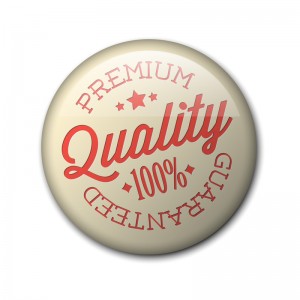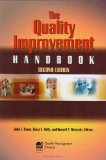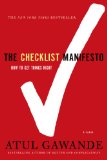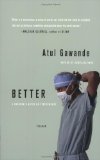Social service professionals have complained to me that there are not resources developed specifically for them to learn quality improvement practice. They are right. But that should not stop them from diving into the pool of materials created for professionals in other fields. We are smart enough to see what applies to our professional realities and what does not. And a lot of it does. So get going. Join the quality revolution by learning QI.
Web-Based Self-Directed Learning in QI
NIATx offers a 60 minute web course on their process improvement model for behavioral health agencies. They call it Process Improvement 101. They also offer a workbook, a toolbox web page of links and much more. They are the real deal. They are golden. Start here with confidence.
QI newbie? Here is a starter document from our friends at the Council on Accreditation. If 10 minutes is all you want to spend and you don't want all that fancy on-line stuff, this is your start.
The Open School was created by the Institute of Healthcare Improvement because medical schools weren't doing a great job of teaching quality improvement science to medical residents. It decided to create its own programs, free to anyone affiliated with a university. IHI is almost synonymous with quality improvement. It has its own terrific guide and has some of the best minds in quality improvement working for it.. It looks like organizations and individuals can now buy subscriptions to the Open School. Check out their QI course list. It was tough to find out what courses cost. I input a fake organization name in order to get a quote. It was $250.
The QSEN Institute, operated out Case Western Reserve University, is designed for nurses. The Robert Wood Johnson Foundation has funded the development of curricula and faculty members in nursing to help make nurses quality experts. (QSEN stands for Quality and Safety Education for Nurses). Their new website offers several online, free, no registration required, e-learning modules, mostly aimed at nurse educators who want to teach quality and safety to their students.
The National Quality Center for Improving HIV care has developed a set of materials designed for the QI novice to work to improve the care of services to people with HIV. These are free .pdf documents.
The Public Health Foundation provides what they call a "quick guide" to learning quality improvement. The tutorial is a free online learning product that they say takes 20-30 minutes to complete.
Duke University Medical Center has an introduction to QI online.
The U.S. government's Health Resources and Services Administration has a couple of webinars and other resources here.
University Based Learning in QI
Check out the local universities in your area. Several, especially those with a medical school, nursing school or school of public health, are offering coursework for credit in QI. Several have established courses of study that result in the granting of a university-based certificate.
Recognized Certifications in QI
A certification in quality from a national or internationally recognized field can help the quality professional in the social services stand out from others. It signals that you are a real quality professional, have some employment experience in the area and have passed an exam covering a specified body of knowledge.
CPHQ, the Certified Professional in Healthcare Quality, is offered by the National Association for Healthcare Quality. Here is what they say about it: "The CPHQ credential signifies professional and academic achievement by individuals in the field of healthcare quality management."
ASQ (formerly the American Society for Quality, an oops of a name choice for an organization that went international) offers several certifications for quality professionals. One entry level qualification that looks appropriate for many who do QI work in the social services is the Quality Improvement Associate Certification. This certification is for a professional that "has a basic knowledge of quality tools and their uses and is involved in quality improvement projects, but doesn't necessarily come from a traditional quality area." An advanced certification, whose exam covers managerial and QI content, is the Manager of Quality / Organizational Excellence Certification.
It is not clear from the ASQ website which of their many certifications are the most appropriate for the human services. ASQ is a legit organization, which offers training and conferences and books for the quality professional. And their certifications will signal breadth of knowledge and experience. They sell books that help you prep for these exams. I have bought the two for the above exams and the content is human services appropriate. But the dizzying number of certifications ASQ offers and the high prices for some of these exams (they range from about $190 to over a thousand dollars) makes me think racket. The Quality Process Analyst certification sounds close to the Quality Auditor and Quality Improvement Associate. Do they really need three entry level certificates? Here is the full list.
Several universities have gotten into the certificate game. They offer courses of study that end in the university granting a certificate. These certificates are different from those issued by ASQ and CPHQ, but they may offer terrific training in QI and give you access to professionals and other folks in your geographic area who are interested in the same things you are.
Quality Improvement Handbooks
There are hundreds of books from which to learn QI. These first two are true handbooks, comprehensive introductions to the field.
The The Quality Improvement Handbook is structured to the ASQ exam for the Quality Improvement Associate. It is a primer for QI for people new to the field and covers philosophies and tools. It is a textbook and reads like one. I am glad I own it. Read something from the inspiring list below and then buy this book to learn how to do QI and make a difference.
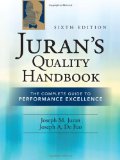 You know you have a money maker on hand when you keep publishing new editions of a textbook after the original author has long left this world. Such is it is with Juran's Quality Handbook
You know you have a money maker on hand when you keep publishing new editions of a textbook after the original author has long left this world. Such is it is with Juran's Quality Handbook , another competitor at the handbook level. This one is an edited affair, with 31 chapter's by leading thinkers in the quality field. I am also glad I own this one. The original author, Joseph Juran, is one of the true visionaries of the field, although it is unclear what of the remaining content he authored.
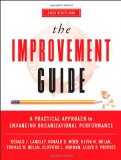
The Improvement Guide is not really a handbook, although it takes a stab at comprehensiveness. It is the bible of IHI. It teaches their improvement model, based on PDSA cycles, has a handy list of ways to improve quality, and some thoughtful examples. These folks don't teach you the alternatives. They think they know how to do it and they are out to spread the gospel.
Other fun resources

QI people talk tools. There is a tool for every task and every meeting. The Quality Toolboxis a guide to these tools and how to use them. You won't learn the philosophies and the on-the-ground dirt on how to fix stuff, but I'll bet you five bucks you will learn something new with this book.
Dashboards
I believe improvement needs to be paired with monitoring for quality and vice versa and monitoring can mean dashboards. There are two resources on how to create and use dashboards for performance management.
Balanced Scorecards & Operational Dashboards with Microsoft Excel by Ron Person. I used this one in my class because my experience is that agency quality people use excel.
Performance Dashboards: Measuring, Monitoring and Managing your Business goes beyond what the beginner agency needs to know to talk some high level stuff. But it also has some great suggestions on how to make your dashboards workable and appealing.
Books to Inspire You to Learn QI
The The Checklist Manifesto by Atul Gawande blew my mind. I kept having to fight the urge to wake up my partner and tell him what I just read. Checklists are but one of many QI tools, but you will become a believer in them.
by Atul Gawande blew my mind. I kept having to fight the urge to wake up my partner and tell him what I just read. Checklists are but one of many QI tools, but you will become a believer in them.
Gawande's Better: A Surgeon's Notes on Performance calls for diligence, creativity and a commitment to doing the right thing to improve medical care, especially surgery, his speciality. But the lessons apply to any service structure that needs to get things right. Gawande is a hero in the quality world and deservedly so.
Other Good QI Stuff
A glossary of QI terms from Vanderbilt University.
Here is a nice interactive history of quality, mostly from the 20th century.
Have your own great resources for learning QI? Leave a note about it in the comment box below.
The Wikipedia University Guide to Quality Improvement

Quality professionals are evidently fans of the online encyclopedia Wikipedia. Some of the entries related to the quality sciences are pretty darn good. It struck us here at qualitysocialservice.com that social service professionals could start learning quality through these wikipedia entries. So here we offer our initial wikipedia guide to the quality sciences. (Thanks to Danielle Kurpad who compiled most of these links).
Here are some wikipedia links on the gurus of quality science.
Here are some tools to get you started on how to monitor for quality in the social services.
Performance Dashboards
Balanced Scorecards
Pareto CharstPositive Deviance
Here are some wikipedia entries related to improving quality.
Here are some wikipedia entries related to cultures that work to enhance quality.

